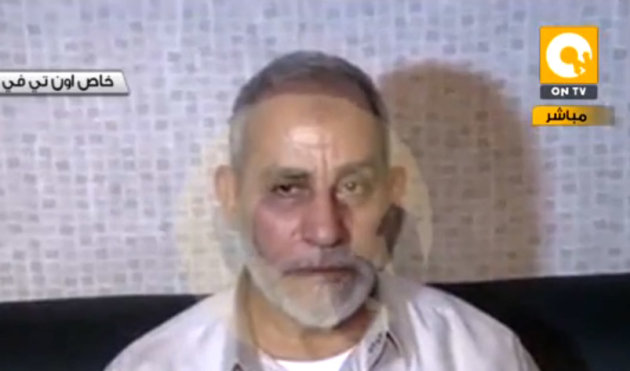It's now been two days since the head of Egypt's armed forces tried to accommodate U.S. concerns and offered to allow the Muslim Brotherhood a chance to participate in Egypt's political transition.
BBC News - Egypt army chief al-Sisi: Room for all in Egypt
At that time, I guessed that the Muslim Brotherhood would insist on its unrealistic and unreasonable demand that Morsi be reinstalled as President and that the U.S. would not publicly credit this constructive offer. To date, the Muslim Brotherhood has retained its rigid demands. From the White House, there has been only silence, maintaining a U.S. leadership vacuum on an issue that remains important to U.S. interests.
In fact, USA Today reported that a de facto cut-off of U.S. military assistance to Egypt has been undertaken during a policy review now underway.
Reports: Most Egypt military aid cut off
In short, the U.S. continues to offer Egypt's transitional government no meaningful opportunities to take a more moderate course (its trial balloon toward that end was ignored) and instead seeks to punish Egypt during a time when U.S. reliability would provide a far greater incentive for a constructive political evolution. At the same time, the lack of transparency regarding the de facto severance of military aid can only breed ambiguity, again at the expense of U.S. reliability and U.S. influence.
In the wake of U.S. silence to Egypt's constructive offer, Egypt's transitional government can reasonably ask, "What does the U.S. really want?" Neither Cairo and probably not even Washington has a clear idea in the continuing absence of a U.S. foreign policy strategy on which a sound policy could be grounded and the overwhelmingly reactive nature U.S. foreign policy making has assumed in the absence of such a foundation.
Down the road, one should not be too surprised to see U.S. policy makers assert that the U.S. lacked sufficient influence to shape Egypt's outcome. On closer inspection, that excuse would be essentially groundless. The reality would be that through hesitation and ambiguity in the face of a crisis, the U.S. frittered away influence and opportunity to shape the outcome.


